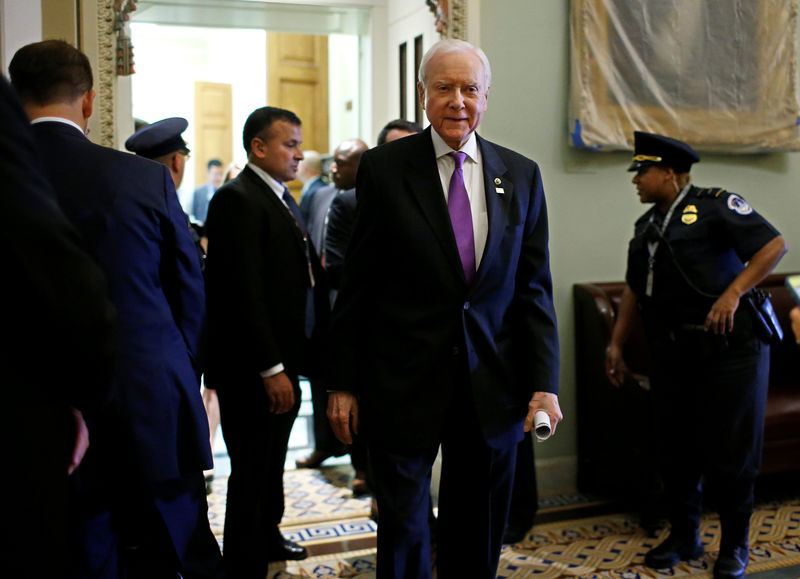By David Morgan
WASHINGTON (Reuters) - U.S. Senate Finance Committee Chairman Orrin Hatch said on Wednesday it is not yet clear how big a tax cut Congress can deliver through tax reform, despite calls by President Donald Trump and other Republicans for steep reductions in business tax rates.
Hatch, whose panel oversees tax policy in the Senate, told a Washington tax policy forum he could also accept a tax reform plan that expands the federal deficit, despite opposition from deficit hawks.
Trump and other Republicans have promised the biggest overhaul of the U.S. tax system since the Reagan era. But the White House says a detailed proposal is not expected until September, allowing little time in 2017 for Congress to act on such a major piece of legislation.
The White House wants to cut the corporate tax rate to 15 percent from 35 percent, while Republicans in the House of Representatives have proposed 20 percent.
But Hatch said he is not committed to any rate targets, because discussions have yet to focus on specific policy changes, including the elimination of tax breaks, needed to help pay for rate reductions.
"Until we perform the surgery and start eliminating preferences and credits in order to bring down rates ... we cannot speak definitively on the rate targets," the Utah Republican said.
"All of that is going to take some time," he added, a day after joining Treasury Secretary Steven Mnuchin, White House economic adviser Gary Cohn and Republican congressional leaders for a weekly tax reform meeting on Capitol Hill.
The Trump administration and congressional Republicans are trying to forge agreement on a tax reform package that can clear the House and Senate this year. The main challenge is the 100-member Senate, where Republicans cannot afford to lose more than two votes from their 52-seat majority.
A top issue for debate is whether tax reform should avoid expanding the deficit by including policy changes that pay for tax cuts.
"I don't see a problem with a tax reform proposal that loses revenue in the short term, if we can show that it will help put our economy on a better growth path," Hatch said.

"However, we do have some budget hawks in our conference who will have a difficult time supporting a package that adds to the deficit, and we'll have to take that into account, because once again we can't afford to lose too many votes."